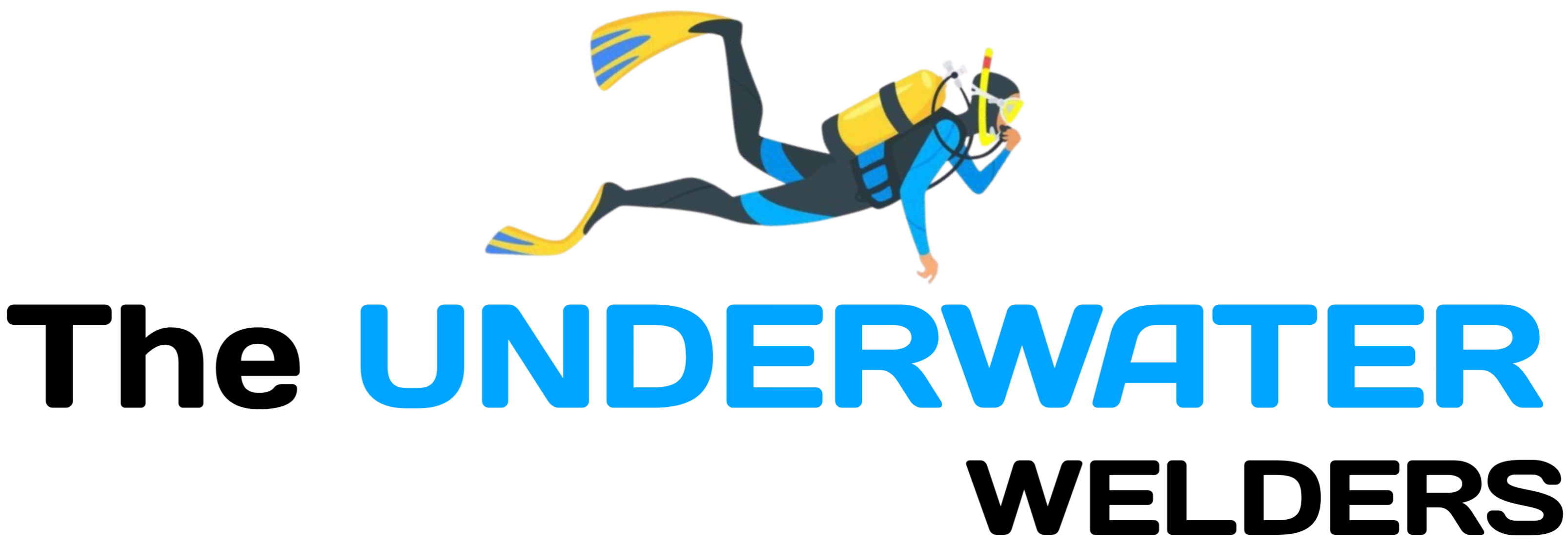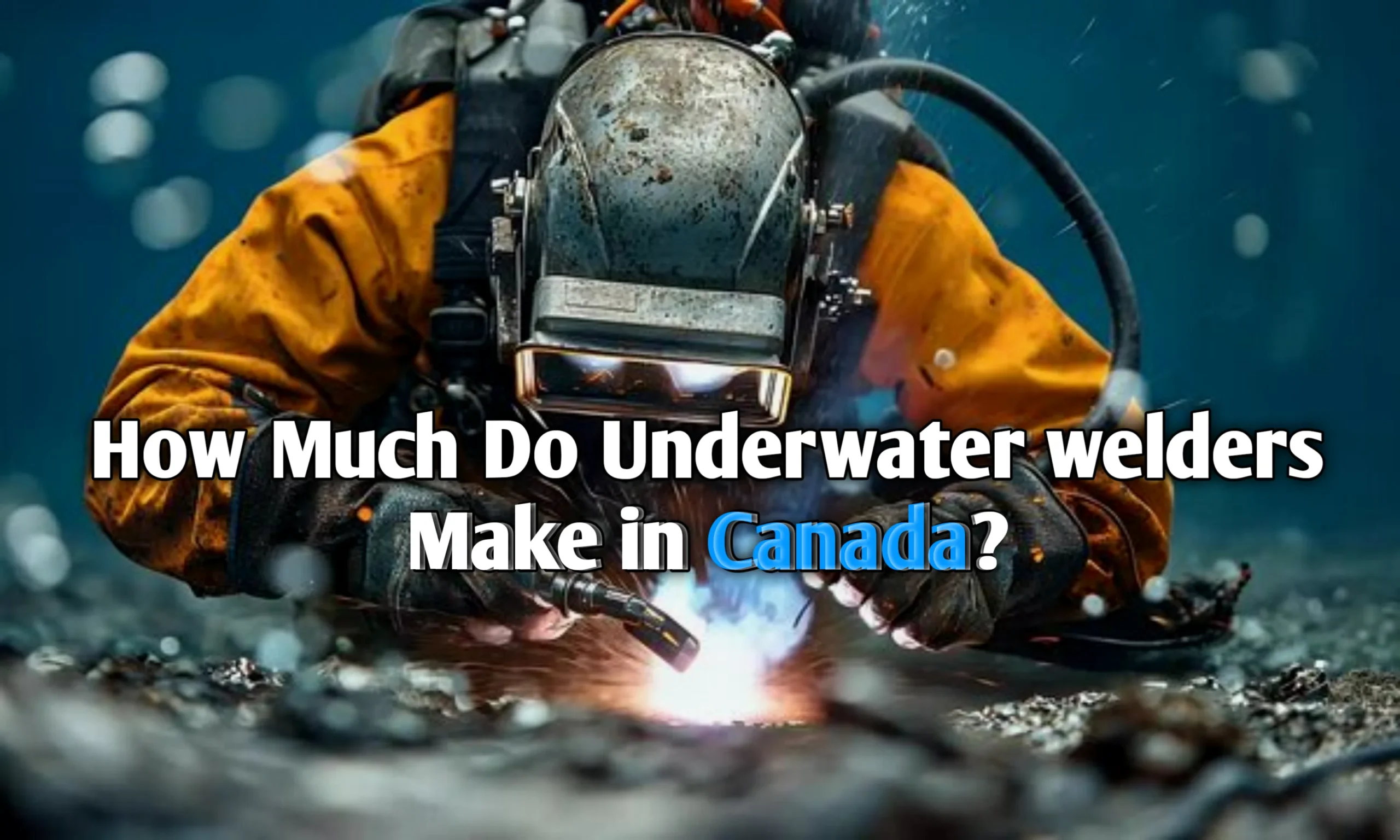Hello everyone,
I’m James Clark, a professional underwater welder, and today I want to talk about something that many people wonder — how much do underwater welders make in Canada? If you’re planning to enter this exciting field or just curious, I’ll explain everything in simple words, based on real experiences.
Is Underwater Welding in Canada a Good Career?
Yes — but let’s be honest. This job isn’t for everyone.
Underwater welding in Canada can be physically demanding and sometimes dangerous. You’ll be diving in cold waters, wearing heavy equipment, and welding under pressure. But if you’re trained and skilled, this career can give you great pay, steady work, and the chance to work on unique projects.
Underwater Welder Salary in Canada
Now, let’s talk numbers. The underwater welder salary in Canada depends on your experience, certifications, and the type of jobs you take.
| Experience Level | Hourly Rate | Monthly Pay | Yearly Salary |
|---|---|---|---|
| Entry-Level (0–2 yrs) | $28 – $38 | $4,500 – $6,000 | $55,000 – $72,000 |
| Mid-Level (2–5 yrs) | $38 – $50 | $6,000 – $8,000 | $72,000 – $95,000 |
| Expert (5+ yrs) | $50 – $70+ | $8,000 – $11,000+ | $95,000 – $130,000+ |
Some offshore or high-risk jobs can offer even higher pay, especially in oil and gas or infrastructure maintenance in remote regions.
What Impacts Salary in Canada?
Several important factors affect how much an underwater welder earns in Canada. Let’s break them down:
1. Experience Level
Just starting out? You’ll likely earn a lower rate. But as you gain more hands-on experience and complete more projects, your value in the industry grows — and so does your paycheck.
2. Location
Jobs in remote areas or offshore sites usually pay more. That’s because working in tough conditions — like freezing waters or distant oil rigs — requires extra effort and often includes bonuses or hazard pay.
3. Certifications
The more certified you are (commercial diving, welding, safety training, etc.), the more job opportunities open up to you. Employers prefer skilled and well-qualified workers and are often willing to pay more for them.
4. Seasonal Demand
Some underwater jobs are seasonal. For example, certain infrastructure or dam repair projects are only possible during warmer months. During these busy seasons, pay can go up due to higher demand for welders.
5. Type of Job
Not all welding jobs are the same. High-risk or emergency repair jobs, especially in harsh environments, typically offer higher pay. The more difficult or dangerous the work, the better the rewards.
Certifications You’ll Need in Canada
To work as an underwater welder in Canada, you must be properly trained. Here are the basics:
1. Commercial Diver Certification (often from schools approved by DCBC – Diver Certification Board of Canada)
2. Underwater Welding Course (focuses on techniques under pressure)
3. Standard Welding Certification (e.g., from Canadian Welding Bureau or equivalent)
4. Medical Clearance for Diving
5. First Aid and CPR Certification
These courses usually cost $15,000 to $25,000, but it’s a career investment.
Where Are the Jobs in Canada?
Unlike many countries, Canada has lots of opportunities for inland and offshore welding. Some of the top regions for jobs include:
- Alberta – Limited underwater work but potential in industrial sectors
- British Columbia – Ports, shipyards, and marine infrastructure
- Newfoundland & Labrador – Offshore oil & gas
- Quebec and Ontario – Dams, bridges, and lake-based projects
Top Companies Hiring in Canada
- Subsea 7
- CAN-DIVE Construction
- Ocean Works
- Government Marine and Port Authorities
- Specialized Infrastructure Contractors
Search job sites like Indeed, Workopolis, and LinkedIn, or contact diving schools for referrals.
A Day in the Life of a Canadian Underwater Welder
Here’s what a typical day looks like for me as an underwater welder in Canada:
- 6:30 AM – Arrive at the job site, attend a safety meeting, and check all dive gear.
- 8:00 AM – Start diving. I might inspect bridge supports, fix a dam gate, or weld broken parts.
- 12:00 PM – Surface, eat lunch, review morning work.
- 1:00 PM – Second dive. Could be cutting metal, repairing pipelines, or cleaning underwater structures.
- 3:30 PM – Finish work, clean gear, log dive reports.
Every day brings new challenges. But that’s what makes the job exciting — it’s never boring.
My First Welding Job in Canada
My first job in Canada was working on a dock maintenance project in British Columbia. The water was freezing, the current was strong, and I barely knew what I was doing — but it changed my life. I learned the value of teamwork, safety, and attention to detail. That small project opened doors to bigger contracts.
Is Underwater Welding Worth It in Canada?
If you’re asking whether it’s worth becoming an underwater welder in Canada — the answer depends on you. It’s physically tough, mentally challenging, and not a 9-to-5 desk job. But if you love adventure, want solid pay, and enjoy doing something different, this could be the right fit.
The underwater welder salary in Canada is strong, and there’s room for growth, especially if you’re willing to travel or take on tougher jobs.
How Does Canada Compare to Other Countries?
Many people ask me how the underwater welding salary in Canada compares to other countries. Let me break it down simply:
1. United States: Underwater welders usually make around $50,000 to $120,000 per year. Offshore jobs pay the most.
2. Australia: Offers similar pay to Canada — sometimes higher — especially in oil and gas projects.
3. United Kingdom: Generally lower salaries than Canada. Most jobs are in ports and shipyards, ranging from £30,000 to £70,000.
Canada sits in a strong position with steady inland and coastal projects, making it a great place for underwater welders to grow and earn well.
How Much Do Underwater Welders Make In Arizona?
My Final Thoughts
So, how much do underwater welders make in Canada? Most welders earn between $55,000 and $130,000+ per year, depending on their skill level, experience, and the type of work they do. Offshore and high-risk work pays more, but even inland jobs offer good income.
My advice: train well, stay safe, and keep learning. Every dive will make you better — and every job will move your career forward.

